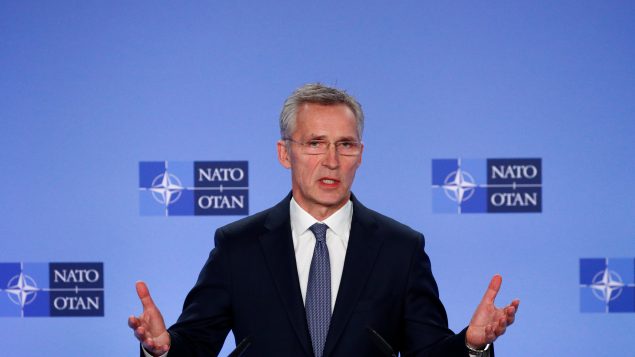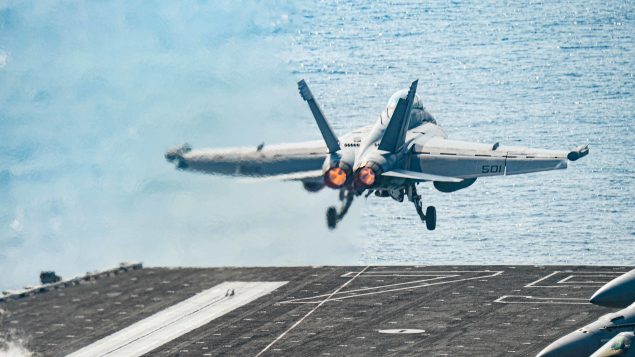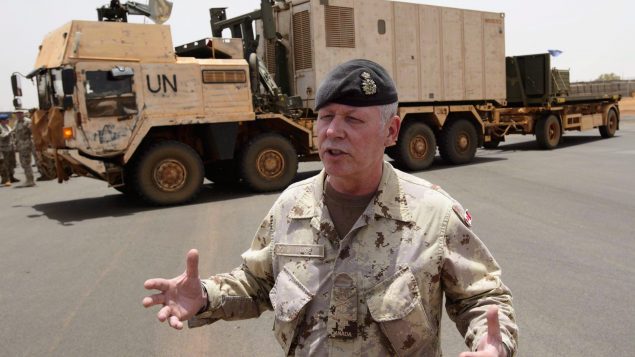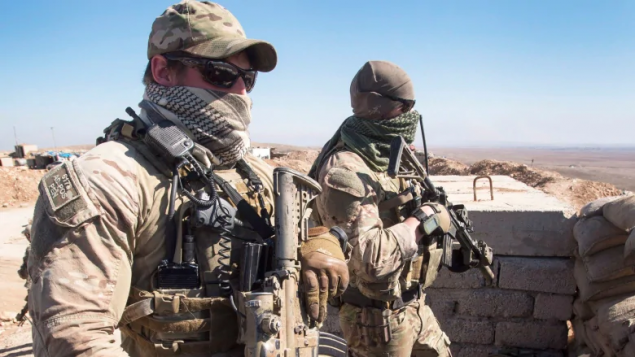The Canadian military has temporarily paused its operations in Iraq and will send some personnel to neighbouring Kuwait “for their safety and security” amid escalating tensions in the region following a U.S. drone strike that killed a top Iranian general.
In a letter addressed to the families of Canadian soldiers deployed in the Middle East, Canada’s chief of the defence staff, Gen. Jonathan Vance, said the Canadian military has suspended operations in both the NATO training mission and the U.S.-led coalition fighting the remnants of the Islamic State, known as Operation Impact.
“The situation in Iraq is complex and it is best to pause our work there in order to fully concentrate our attention and efforts towards the safety and security of our personnel while the situation develops,” Vance said in the letter published on Tuesday.
Canada has about 500 troops in Iraq deployed under two separate missions, he said.
About half of them, under the command of Maj.- Gen. Jennie Carignan provide support to the NATO training mission in and around Baghdad. Canadian soldiers, including elite Special Forces commandos, are also based in northern Iraq under Operation Impact.
“Over the coming days, and as a result of coalition and NATO planning, some of our people will be moved temporarily from Iraq to Kuwait,” Vance said. “Simply put, we are doing this to ensure their safety and security.”
NATO suspends operations as well

NATO Secretary General Jens Stoltenberg briefs media after a meeting of the Alliance’s ambassadors over the security situation in the Middle East, in Brussels, Belgium Jan. 6, 2020. (Francois Lenoir/REUTERS)
NATO officials told Radio Canada International on Tuesday that they are “taking all precautions necessary to protect our people.”
“This includes the temporary repositioning of some personnel to different locations both inside and outside of Iraq,” a NATO official told RCI in an emailed statement. “NATO maintains a presence in Iraq. And we are prepared to continue our training and capacity-building when the situation permits.”
The U.S. drone strike that killed Gen. Qassem Soleimani, the commander of the Islamic Revolutionary Guards Corps’ expeditionary Quds Force, as well as a top Iraqi militia leader and members of their entourage near the Bagdad airport on Friday, has brought simmering tensions between Tehran and Washington to a boiling point.
Authorities in Tehran have vowed to avenge Soleimani’s assassination and have announced that they are abandoning the remaining limits of Iran’s 2015 nuclear deal with world powers.
In Iraq, pro-Iranian factions in parliament have pushed to oust American and foreign troops from Iraqi soil following Soleimani’s killing.
Dependent on U.S. airlift and fire power

An F/A-18E Super Hornet launches from the flight deck of the U.S. Navy aircraft carrier USS Harry S. Truman in the Arabian Sea Jan. 6, 2020. (U.S. Navy/Mass Communication Specialist 3rd Class Kaysee Lohmann/Handout via REUTERS)
Matthew Fisher, a veteran Canadian foreign correspondent and a Fellow at the Canadian Global Affairs Institute, said Ottawa would have to rely on the U.S. fire power and airlift capability to extract Canadian troops from Iraq if the security situation in the country deteriorates further.
The Canadian military would have to get into Iraq a couple of its C-17 Globemaster or up to four smaller C-130 Hercules transport aircraft to ferry the troops to safety, Fisher said.
But getting the lightly armed Canadian soldiers from the relative security of their bases to the airports could require U.S. support, he added.
“If there are riots or things like that, they [Canadians] would totally be dependent on the Americans and they know that,” said Fisher, who has extensive experience reporting from Iraq.
“The Americans still have Apache gunships in Bagdad, they still have F-15s and F-16s in all the neighbouring countries, they have assault troops – they’ve got 5,000 Airborne now in Kuwait, they’ve got 2,000 U.S. Marines arriving on an assault ship that is going through the Suez Canal right now.”
The U.S. forces also have cruise missile assets either on aircraft or submarines, as well as B-1 and B-2 strategic bombers, Fisher added.
“There are a number of ways they can protect the NATO forces to help them get out,” Fisher said.
In contrast, the Canadian forces in Iraq are armed with personal weapons, light machine guns and a few heavy machine guns, he said.
“So we cannot really defend ourselves,” Fisher said.
All necessary measures taken

Chief of the Defence Staff Gen. Jonathan Vance arrives with the first Canadian troops at a UN base in Gao, Mali, on Sunday, June 24, 2018. (Sean Kilpatrick/THE CANADIAN PRESS)
Canada is working in collaboration with its international partners, Vance said.
“First and foremost, let me assure you that all necessary force protection measures that can be taken have been taken,” Vance said.
“The safety and security of Canadian Armed Forces (CAF) personnel is my priority, as it is the priority of my senior leadership. Force protection measures continue to be considered, reassessed, and modified as required on a daily basis.”
Allies caught off guard
The U.S. decision to assassinate Soleimani caught Washington’s allies, including Canada, by surprise.
Prime Minister Justin Trudeau discussed the situation in Iraq with a number of world leaders on Tuesday and Monday.
Trudeau spoke on the phone with German Chancellor Angela Merkel and Jordanian King Abdullah II on Tuesday.
“Prime Minister Trudeau and Chancellor Merkel shared their concerns about the situation in Iraq,” said a readout of the call released by the Prime Minister’s Office. “The two leaders discussed the need to encourage all parties to take steps toward de-escalation.”
Trudeau and King Abdullah agreed on the need to remain focused on fighting the remnants of the Islamic State and “underlined the importance of fostering stability and security in Iraq,” the readout said.
In a phone call with NATO Secretary General on Monday, Trudeau reiterated Ottawa’s commitment to the success of the Canadian-led NATO training mission in Iraq, officials said.







For reasons beyond our control, and for an undetermined period of time, our comment section is now closed. However, our social networks remain open to your contributions.